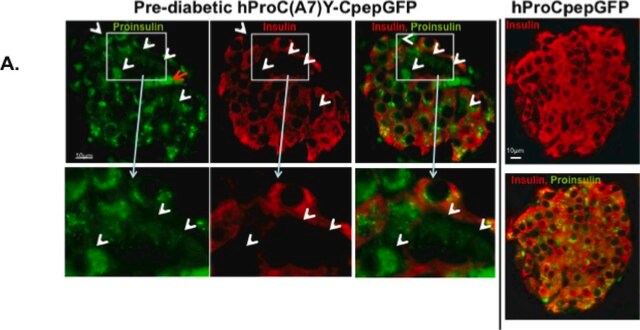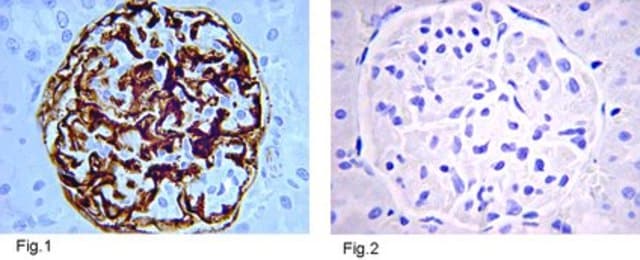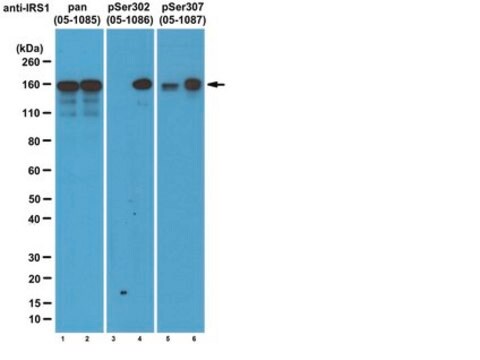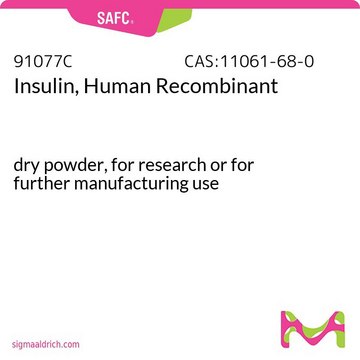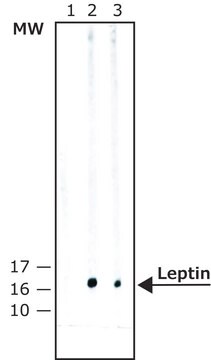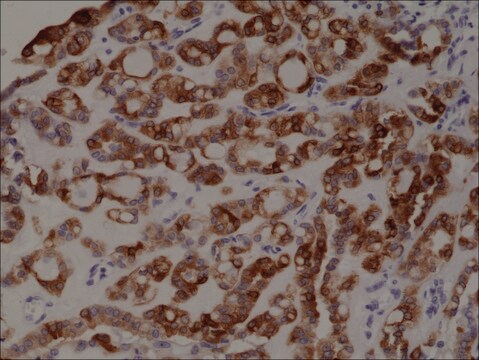Key Documents
SAB4200691
Anti-Insulin antibody, Mouse monoclonal
clone K36AC10, purified from hybridoma cell culture
Synonim(y):
INS
About This Item
Polecane produkty
pochodzenie biologiczne
mouse
Poziom jakości
forma przeciwciała
purified immunoglobulin
rodzaj przeciwciała
primary antibodies
klon
K36AC10, monoclonal
Postać
buffered aqueous solution
reaktywność gatunkowa
guinea pig, porcine, bovine (proinsulin), rat, monkey, sheep, dog, horse, human (insulin ), rabbit
metody
immunoblotting: suitable
immunocytochemistry: suitable
immunofluorescence: 2.5-5 μg/mL using ß -TC-6 Mouse Embryo Pancrease Insulinoma cells.
immunohistochemistry: 10 μg/mL using heat-retrieved formalin-fixed, paraffin-embedded human pancreas sections and Biotin/ExtrAvidin®-Peroxidase staining system.
radioimmunoassay: suitable
izotyp
IgG1
Warunki transportu
dry ice
temp. przechowywania
−20°C
docelowa modyfikacja potranslacyjna
unmodified
informacje o genach
bovine ... Ins(280829)
dog ... Ins(483665)
guinea pig ... Ins(100379579)
horse ... Ins(111776000)
human ... INS(3630)
pig ... Ins(397415)
rabbit ... Ins(100009181)
rhesus monkey ... Ins(704534)
Opis ogólny
Immunogen
Zastosowanie
Działania biochem./fizjol.
Postać fizyczna
Informacje prawne
Oświadczenie o zrzeczeniu się odpowiedzialności
Nie możesz znaleźć właściwego produktu?
Wypróbuj nasz Narzędzie selektora produktów.
Kod klasy składowania
10 - Combustible liquids
Klasa zagrożenia wodnego (WGK)
WGK 1
Temperatura zapłonu (°F)
Not applicable
Temperatura zapłonu (°C)
Not applicable
Certyfikaty analizy (CoA)
Poszukaj Certyfikaty analizy (CoA), wpisując numer partii/serii produktów. Numery serii i partii można znaleźć na etykiecie produktu po słowach „seria” lub „partia”.
Masz już ten produkt?
Dokumenty związane z niedawno zakupionymi produktami zostały zamieszczone w Bibliotece dokumentów.
Nasz zespół naukowców ma doświadczenie we wszystkich obszarach badań, w tym w naukach przyrodniczych, materiałoznawstwie, syntezie chemicznej, chromatografii, analityce i wielu innych dziedzinach.
Skontaktuj się z zespołem ds. pomocy technicznej